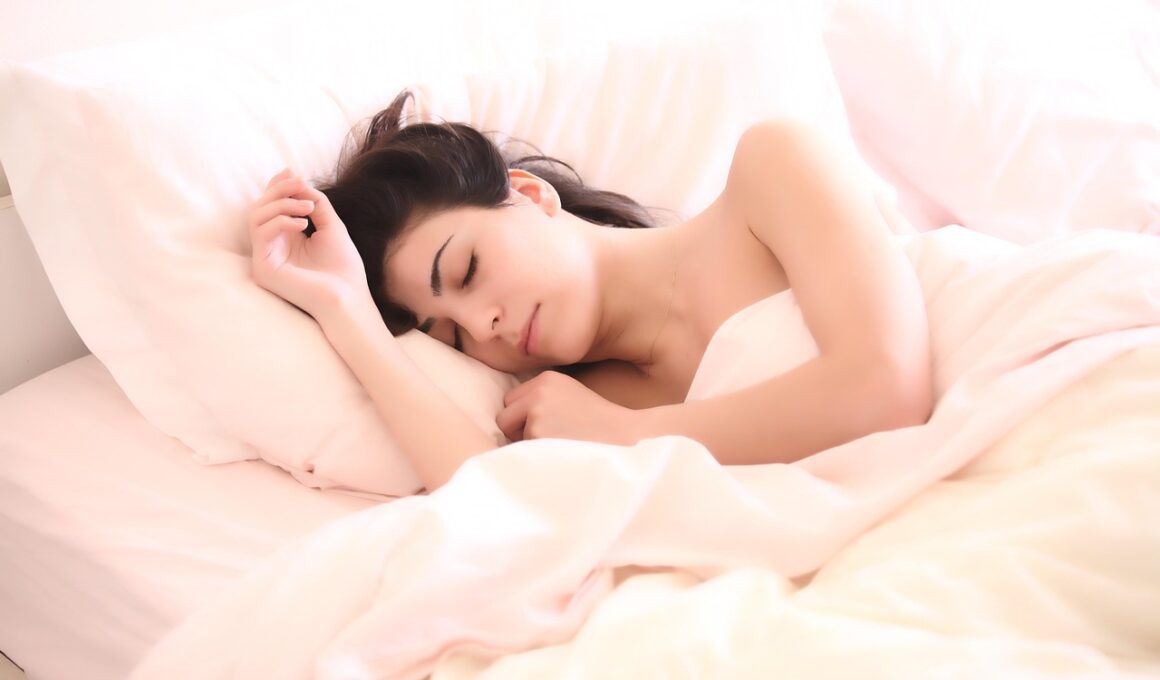In-Depth Review of Leading Sleep Tracking Wearables
Sleep tracking devices have gained popularity as essential tools for improving sleep quality and overall health. These innovative gadgets use advanced technology to monitor sleep patterns, providing insights into how well we rest each night. Many wearables offer various features, allowing users to track factors such as sleep duration, interruptions, and even sleep stages. Some of these devices work using sensors that detect movement and heart rate while others utilize advanced algorithms to analyze breathing patterns during sleep. With so many options on the market, it can be challenging to choose the right one for your needs. One of the leading brands is Fitbit, known for its comprehensive health tracking features. Additionally, the Oura Ring has gained attention for its accuracy and sleek design. Apple Watch also provides sleep tracking capabilities, making it a popular choice for iPhone users. Users find these devices helpful, as they draw attention to sleep habits that can be beneficial for health improvement. Moreover, many of these wearables sync with smartphone apps, making it easy for users to visualize and understand their sleep data over time.
When considering sleep tracking wearables, it is crucial to evaluate specific features that may influence your choice. Many trackers measure heart rate variability, while others focus on sound or light disturbances throughout the night. Battery life is another important aspect to consider, as some wearables need recharging every couple of days, and others can function for weeks. Users often appreciate devices that are comfortable to wear overnight, which may require a more lightweight and breathable design. Additionally, syncing capabilities with smartphone applications provide essential insights and reports. Some wearables even allow users to create custom sleep schedules or set bedtime reminders. Smartwatches often come with additional features that enhance the overall experience, such as fitness tracking and notifications. This multi-functionality can be appealing to those who want a single device for various health metrics. Also, consider the ease of use and interface cleanliness of accompanying applications. High-quality visualizations help users understand their sleep data better and encourage healthier sleeping patterns. By taking these factors into account, you can ensure that you choose a sleep tracker that suits your lifestyle and needs.
Key Features to Look For
Among the key features that distinguish sleep tracking wearables, accuracy is paramount. Some devices utilize advanced sensors to deliver detailed sleep data while others may provide generalized insights. Sleep stages, including REM and deep sleep, should ideally be tracked accurately, helping users monitor the quality of their rest. Monitoring heart rate variability is essential for understanding how well your body is recovering during sleep. Compatibility with various smartphone operating systems adds to the usability of these devices, ensuring that you can access your sleep data easily. Furthermore, consider whether the device has various sleep modes that allow for personalization. For some users, reminders to establish a bedtime routine can significantly improve sleep hygiene. Sleep score functionalities are often included, scoring sleep quality based on various metrics, encouraging users to strive for better rest. Additionally, responsive notifications and compatibility with smart home devices can enhance the user experience. Finally, it is advisable to look for wearables that provide educational content or recommendations based on sleep data. These features not only make the device more useful but also encourage users to develop healthier sleep habits.
Another essential aspect to consider is the design and comfort of sleep tracking wearables. Since these devices are often worn during the night, it is crucial that they are comfortable for long periods. Many brands offer models that are slim, lightweight, and designed specifically to be unobtrusive. Some wearables have additional materials that are soft against the skin, minimizing irritation. The aesthetic appeal also matters, as many users prefer devices that complement their personal styles. A sleek design can make the device more acceptable for use beyond just sleep tracking, such as daytime fitness monitoring. Color choices and customizable straps can further increase user satisfaction. If the device doubles as a casual accessory, users are more likely to keep it on regularly, thus enhancing its utility. Additionally, look for trackers that provide customizable watch faces or display options, allowing users to select what data is most visible at any given time. Reviews and ratings can provide insights into how comfortable and stylish the wearable is, aiding in making an informed decision. Ultimately, comfort and design contribute significantly to the overall satisfaction of using sleep trackers.
Comparison of Popular Models
When comparing popular models of sleep tracking wearables, it’s essential to assess their uniqueness and special capabilities. The Fitbit Charge 5 stands out for its comprehensive health metrics, including sleep tracking. It offers a dedicated sleep score feature that evaluates sleep quality based on data gathered. Users appreciate its intuitive app interface, making navigating through sleep data easy. Another noteworthy competitor is the Oura Ring, which emphasizes accurate sleep stage tracking and overall wellness insights. Its battery life is impressive, often functioning for up to seven days on a single charge. The Apple Watch, though primarily a smartwatch, also provides effective sleep tracking capabilities alongside fitness monitoring, making it a multifunctional option. Furthermore, devices from Garmin emphasize performance metrics useful for athletes, though some may feel these don’t focus as heavily on general sleep trends. The Whoop band appeals specifically to those seeking performance optimization, providing sleep coaching based on recovery metrics. Consider these unique attributes when choosing, and remember individual user preferences can significantly influence suitability.
Beyond sleep metrics, many wearables also incorporate mindfulness features, which contribute positively to wellness and better sleep. Users can benefit from guided meditation sessions and breathing exercises aimed at reducing stress levels. Devices often offer reminders and prompts encouraging users to practice mindfulness before bed. Many wearables also facilitate integration with other health apps, allowing for a deeper understanding of how lifestyle impacts sleep quality. This holistic approach is incredibly beneficial, with insights extending beyond sleep alone to include physical and mental health metrics. For instance, understanding how stress or physical activity levels correlate with sleep can empower users to make meaningful lifestyle changes. Additionally, users may appreciate sleep challenges and community features allowing them to interact with others on similar journeys. These features often motivate users to stick to their sleep goals, fostering camaraderie and support. As technology evolves, sleep tracking wearables continue to improve, integrating emerging trends to enhance user experience. Evaluating extra features can lead to a more thoughtful purchase that aligns closely with personal health objectives.
Conclusion and Final Thoughts
In conclusion, selecting a sleep tracking wearable requires thorough consideration of various factors, including features, comfort, and design. Each device comes with its unique strengths, catering to different user preferences and needs. The landscape of sleep tracking technologies is continuously evolving, with innovations enhancing accuracy and user engagement. For individuals looking to improve their sleep health, investing in a quality sleep tracker is a worthwhile endeavor. By analyzing sleep patterns, users can gain valuable insights that promote better sleep habits and overall wellness. It’s essential to understand that while these devices are effective tools, lifestyle choices such as diet, exercise, and stress management also play critical roles in determining sleep quality. Ultimately, the best wearable is one that aligns with your lifestyle and meets your personal preferences. With a growing variety of options available, doing research before making a decision is imperative. By focusing on the right features and benefits, anyone can find a sleep tracker that not only enhances their sleep quality but also supports an overall healthier lifestyle.
As sleep tracking devices continue to advance, expect to see more innovative features in the coming years. Developers are increasingly focusing on improving the algorithms that drive these devices, allowing for even more personalized insights into sleep health. The integration of AI and machine learning will likely enhance how these devices analyze data and provide recommendations. Users can anticipate wearables that not only track sleep but also automatically adjust environments for optimal rest, such as controlling lighting and temperature based on sleep stage information. Furthermore, research into sleep science will continuously inform product development, introducing new features that aim to enhance sleep quality. As awareness of sleep’s vital role in health grows, the demand for effective tools is likely to increase. This surge will attract new players to the market, fostering competition and innovation. For consumers, that translates into better products, more features, and potentially lower prices. In the end, sleep tracking wearables hold promising potential for improving individual health outcomes, creating a direct impact on quality of life. An informed choice can help unlock the benefits these technologies offer.


